Answered step by step
Verified Expert Solution
Question
1 Approved Answer
public class Item { private String itemName; private double value; } // one argument constructor using value attribute public Item(double value) { this.value =
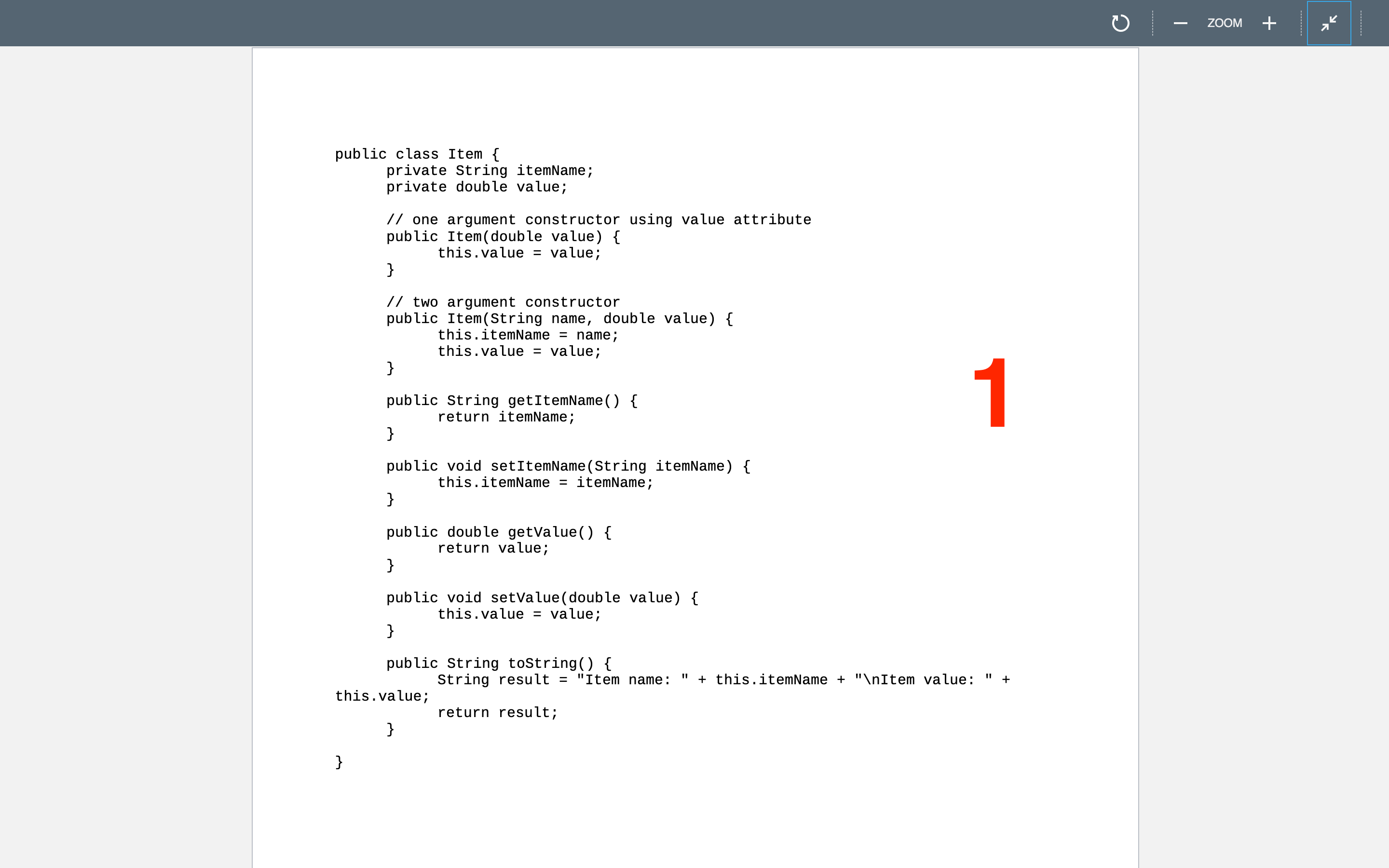
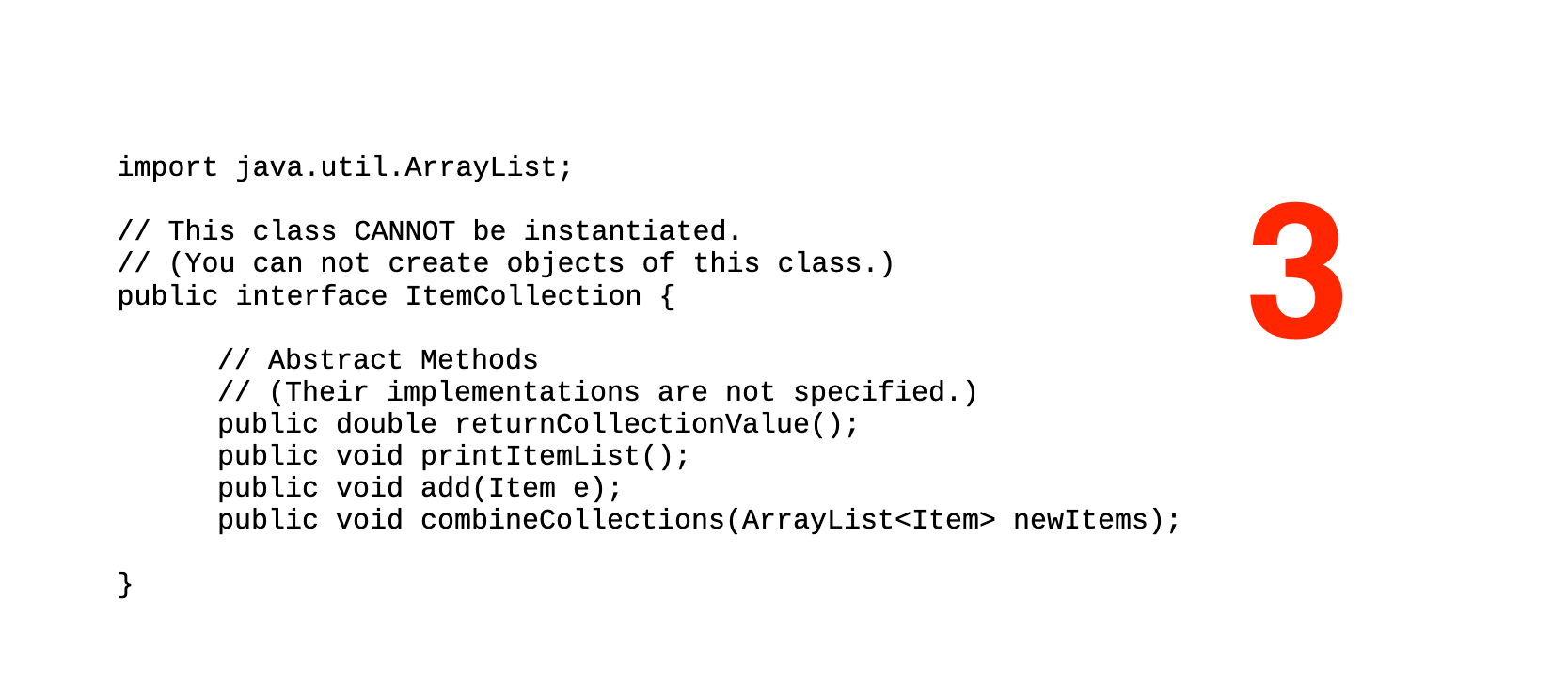
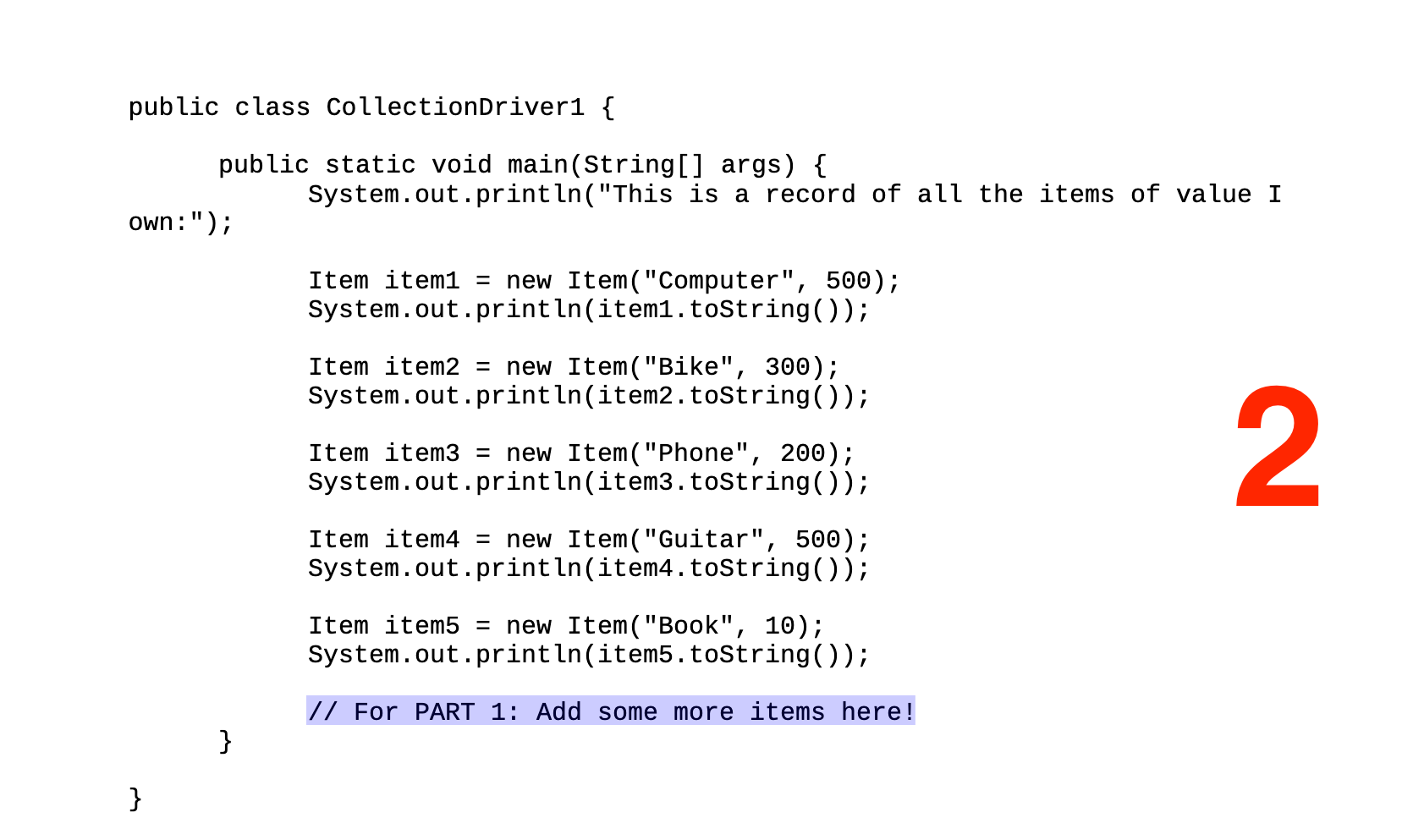
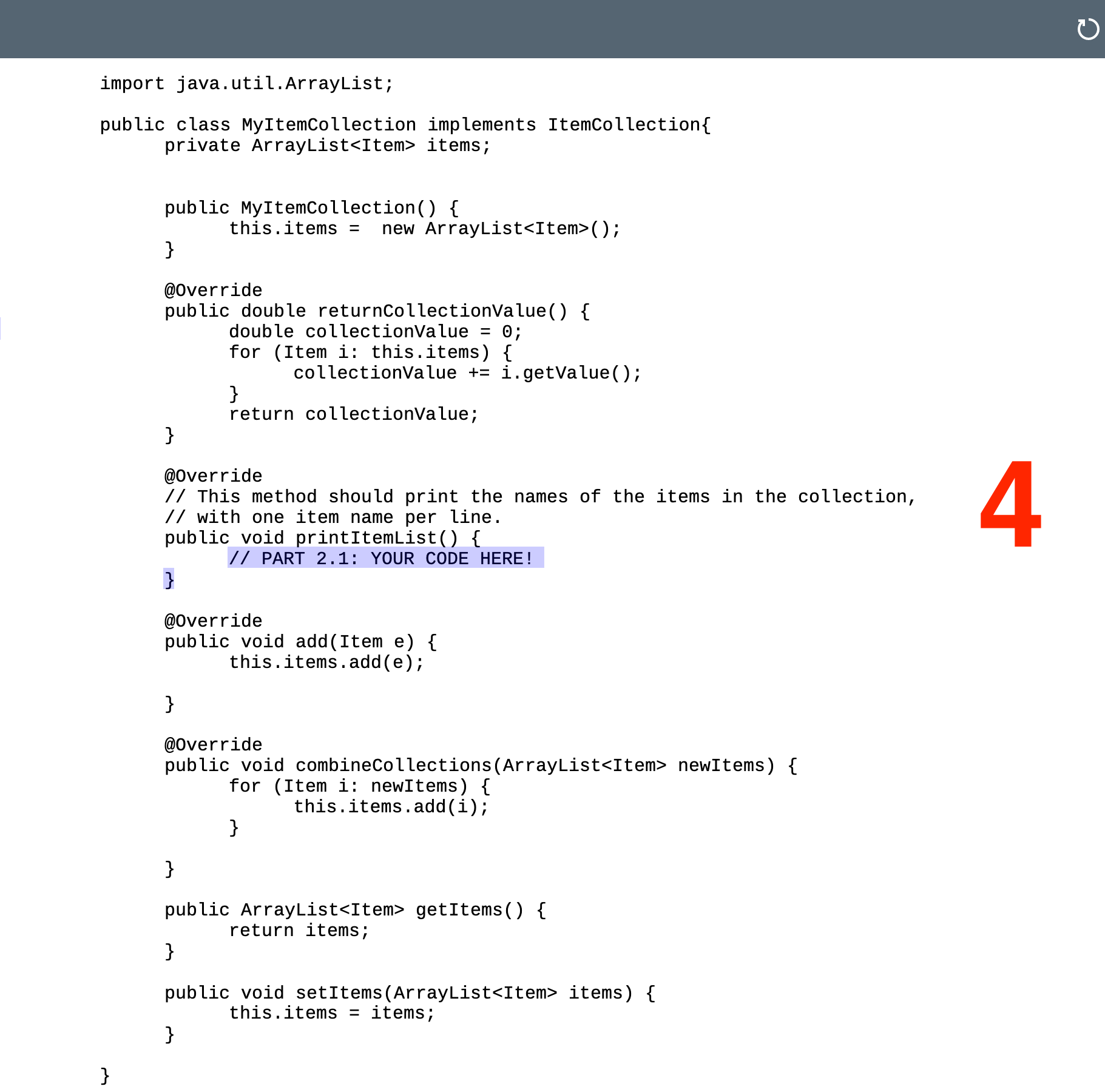
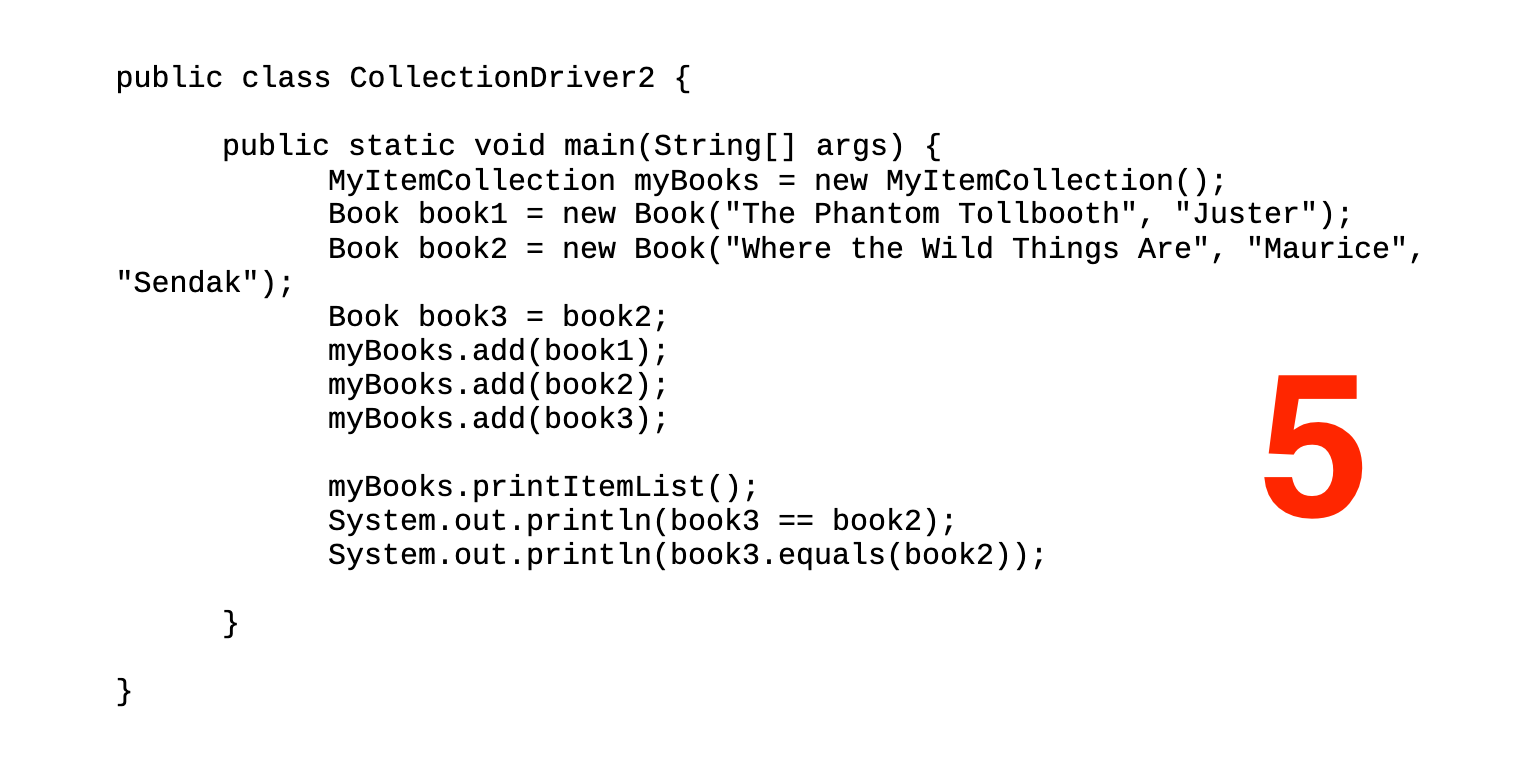
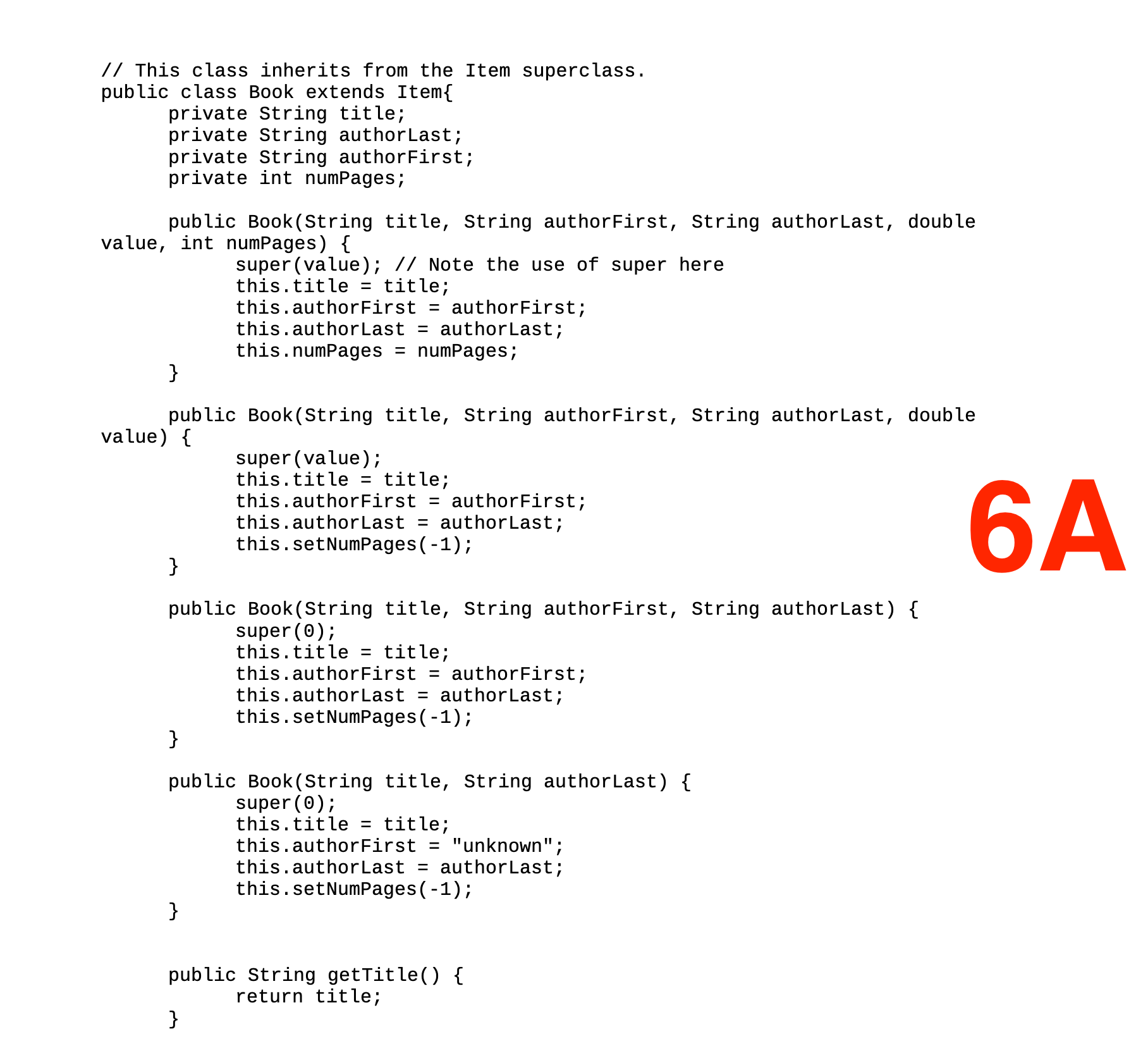
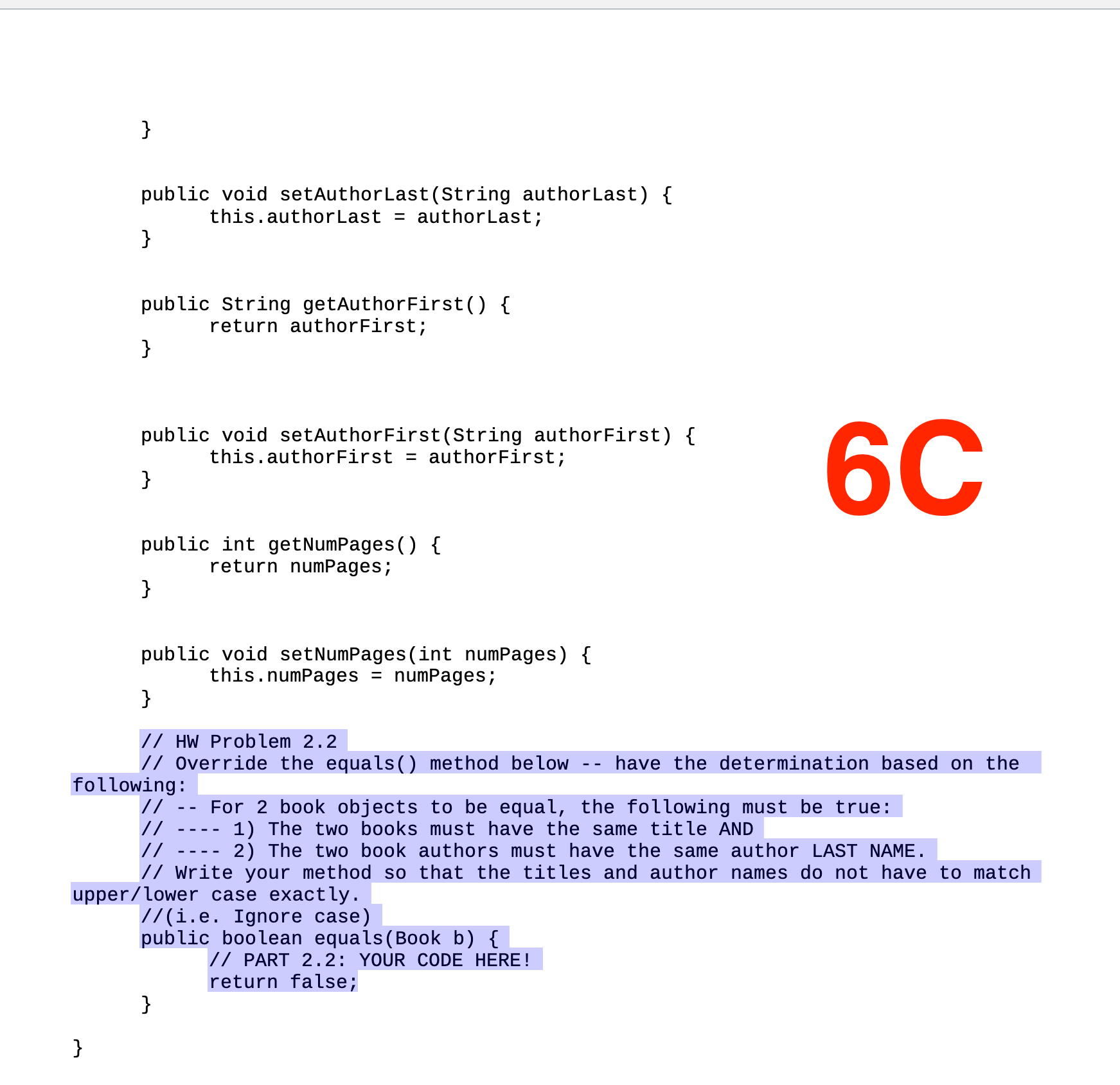
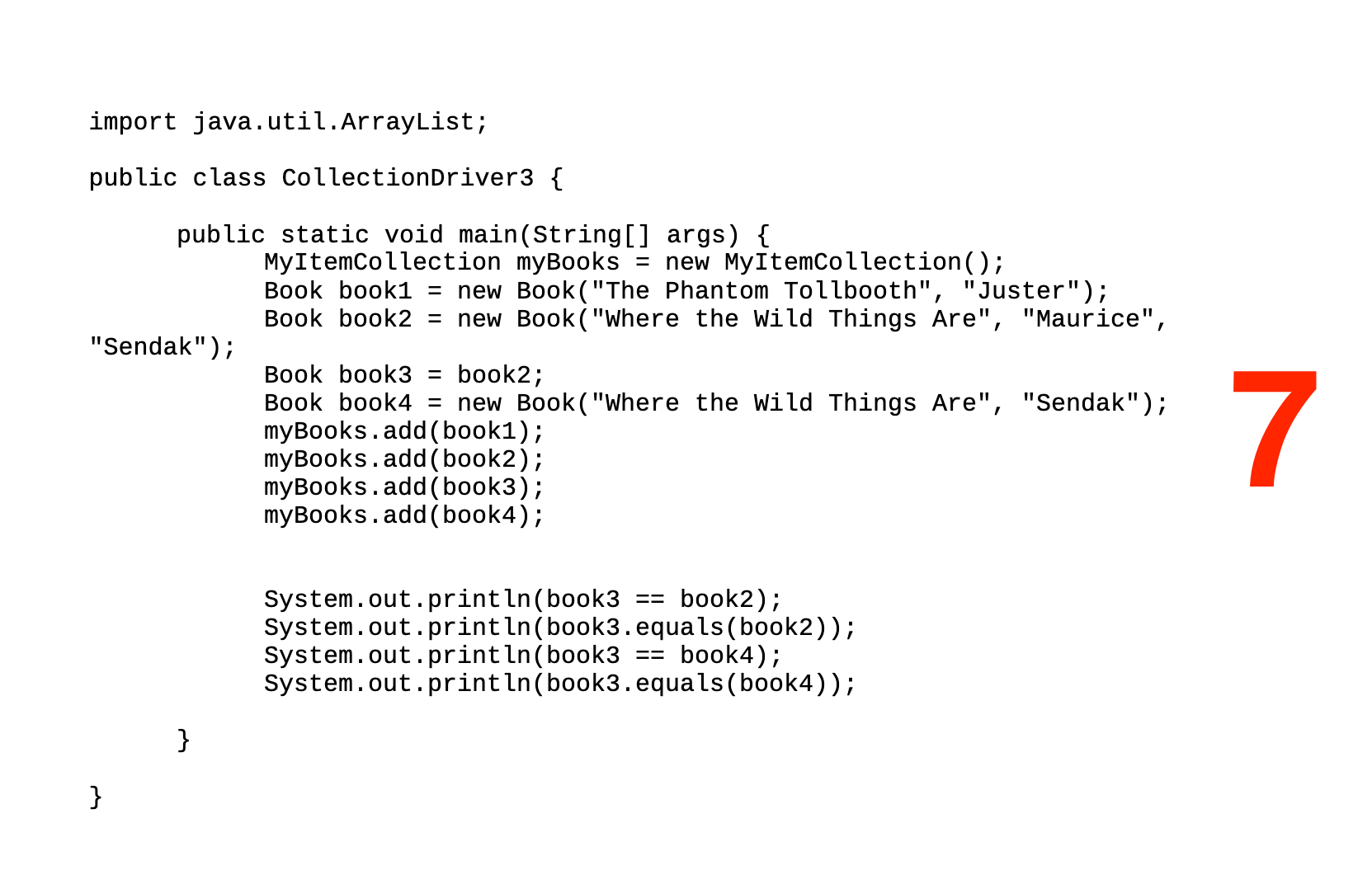
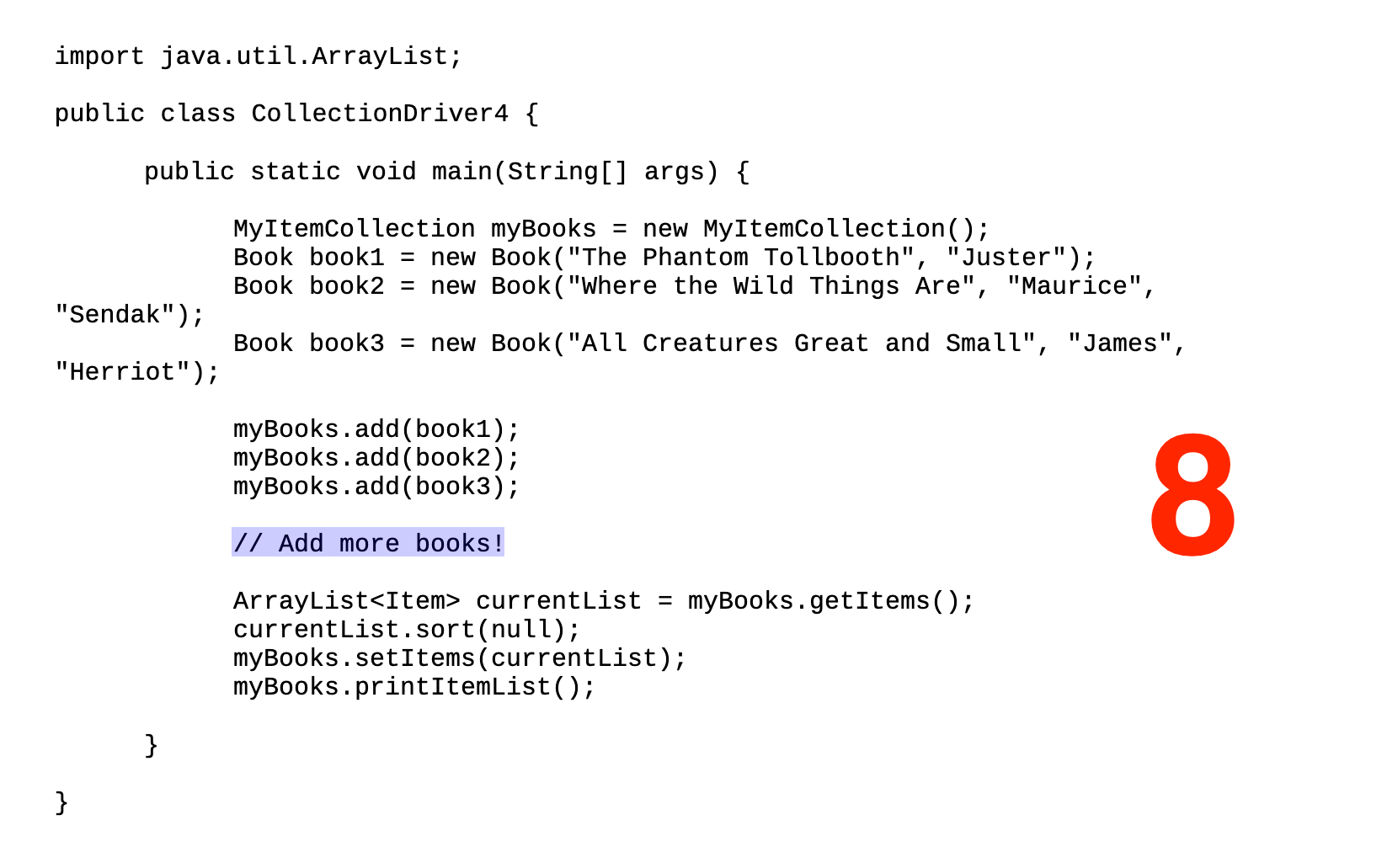
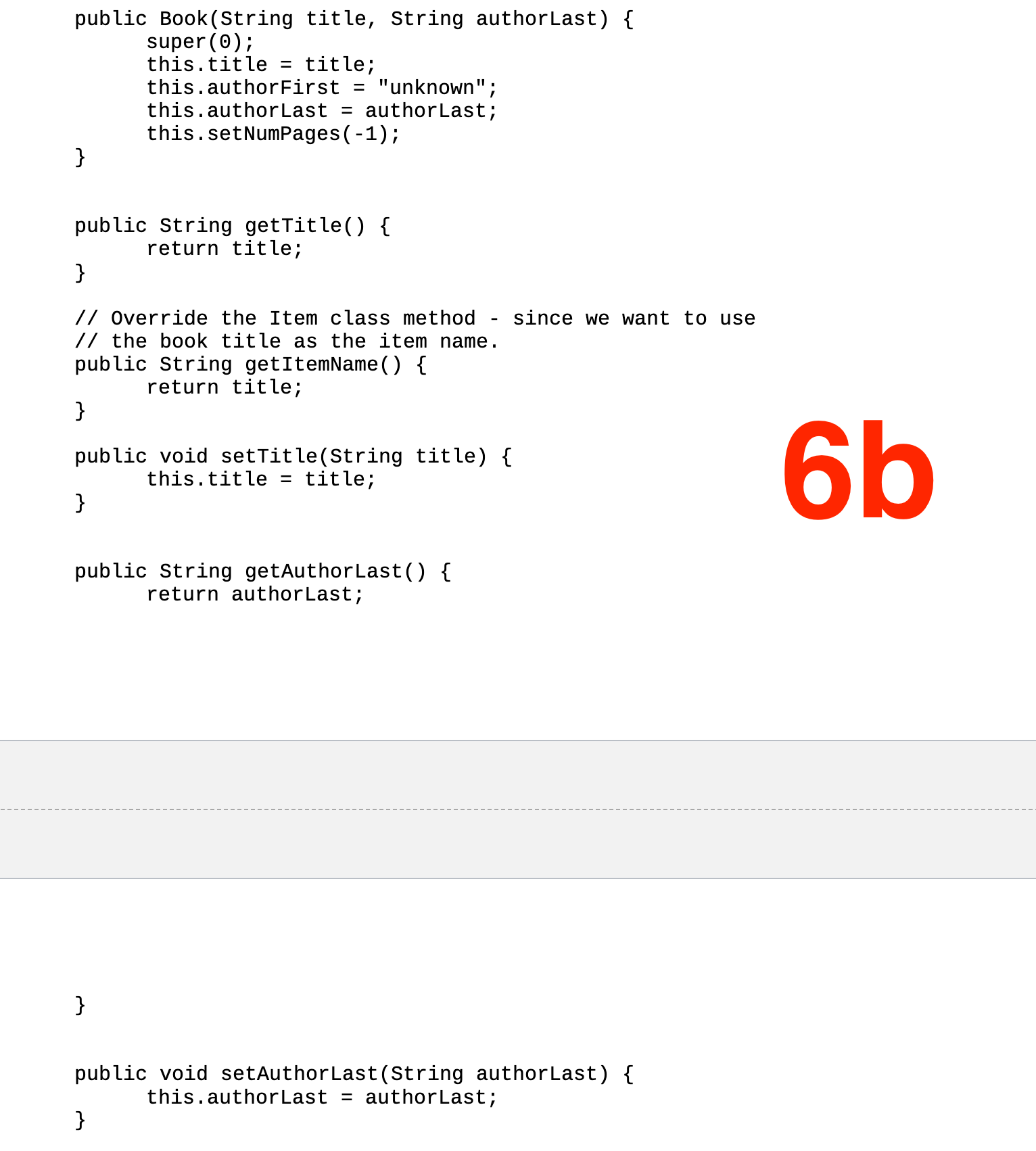
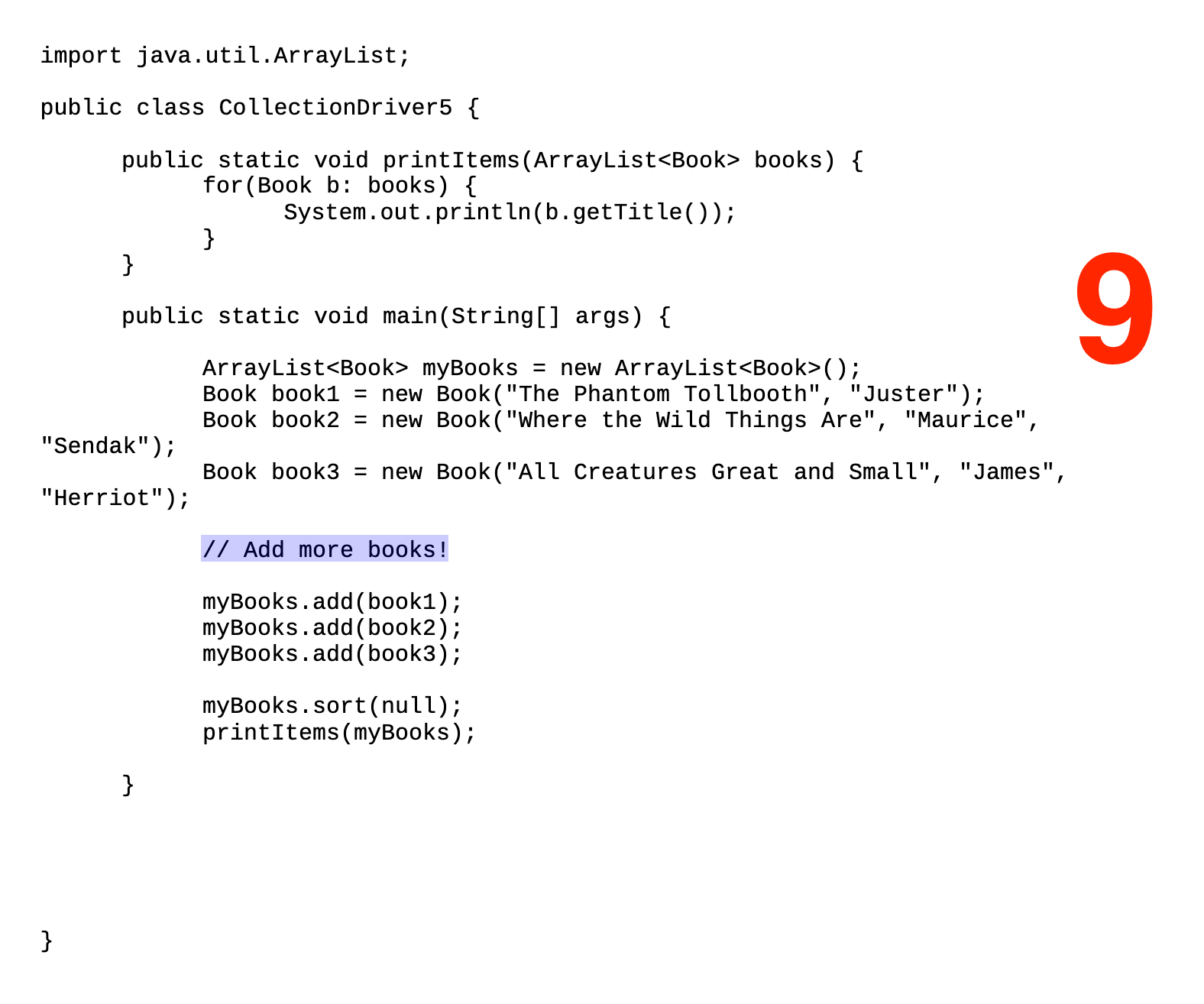
public class Item { private String itemName; private double value; } // one argument constructor using value attribute public Item(double value) { this.value = value; } // two argument constructor public Item(String name, double value) { this.itemName = name; this.value = value; } public String getItemName() { return itemName; } public void setItemName(String itemName) { this.itemName = itemName; } public double getValue() { return value; } public void setValue(double value) { this.value = value; } this.value; } public String toString() { "I String result = "Item name: + this.itemName + " Item value: + return result; 1 11 O ZOOM + import java.util.ArrayList; // This class CANNOT be instantiated. // (You can not create objects of this class.) public interface ItemCollection { } // Abstract Methods // (Their implementations are not specified.) public double returnCollectionValue(); public void printItemList(); public void add(Item e); public void combineCollections (ArrayList newItems); 3 public class CollectionDriver1 { public static void main(String[] args) { System.out.println("This is a record of all the items of value I own:"); } } Item item1 = new Item("Computer", 500); System.out.println(item1.toString()); Item item2 = new Item("Bike", 300); System.out.println(item2.toString()); Item item3 = new Item("Phone", 200); System.out.println(item3.toString()); Item item4 = new Item("Guitar", 500); System.out.println(item4.toString()); Item item5 = new Item("Book", 10); System.out.println(item5.toString()); // For PART 1: Add some more items here! 2 import java.util.ArrayList; public class MyItemCollection implements ItemCollection{ private ArrayList items; } public MyItemCollection() { } @Override public double returnCollectionValue() { double collectionValue = 0; for (Item i: this.items) { } this.items = new ArrayList (); } @Override // This method should print the names of the items in the collection, // with one item name per line. public void printItemList() { } collectionValue += i.getValue(); } return collectionValue; @Override public void add(Item e) { this.items.add(e); } // PART 2.1: YOUR CODE HERE! @Override public void combineCollections (ArrayList newItems) { for (Item i: newItems) { this.items.add(i); } } public ArrayList getItems() { return items; public void setItems (ArrayList items) { this.items - items; 4 public class CollectionDriver2 { public static void main(String[] args) { MyItemCollection myBooks = new MyItemCollection(); Book book1 = new Book ("The Phantom Tollbooth", "Juster"); Book book2 = new Book ("Where the Wild Things Are", "Maurice", 5 "Sendak"); } } Book book3 = book2; myBooks.add(book1); myBooks.add(book2); myBooks.add(book3); myBooks.printItemList(); System.out.println(book3 == book2); System.out.println(book3.equals(book2)); // This class inherits from the Item superclass. public class Book extends Item{ private String title; private String authorLast; private String authorFirst; private int numPages; public Book (String title, String authorFirst, String authorLast, double value, int numPages) { super (value); // Note the use of super here this.title = title; this.author First = author First; this.author Last = = author Last; this.numPages = numPages; } public value) { } public Book (String title, String authorFirst, String author Last) { super (0); Book (String title, String authorFirst, String authorLast, double super (value); this.title = title; this.author First = author First; this.author Last = author Last; this.setNumPages(-1); } } public Book(String title, String authorLast) { super (0); this.title = title; this.author First = author First; this.author Last = author Last; this.setNumPages (-1); } this.title = title; this.author First = "unknown"; this.author Last = author Last; this.setNumPages(-1); public String getTitle() { return title; 6A } public void setAuthorLast(String authorLast) { this.author Last = author Last; } } public String getAuthorFirst() { return author First; } public void setAuthor First(String author First) { this.author First = author First; } public int getNumPages() { return numPages; } public void setNumPages(int numPages) { this.numPages = numPages; } // HW Problem 2.2 // Override the equals() method below I have the determination based on the following: For 2 book objects to be equal, the following must be true: // 1) The two books must have the same title AND // 2) The two book authors must have the same author LAST NAME. // Write your method so that the titles and author names do not have to match upper/lower case exactly. ---- } 6C ---- //(i.e. Ignore case) public boolean equals(Book b) { // PART 2.2: YOUR CODE HERE! return false; import java.util.ArrayList; public class CollectionDriver3 { public static void main(String[] args) { "Sendak"); } } MyItemCollection myBooks = new MyItemCollection(); Book book1 = new Book ("The Phantom Tollbooth", "Juster"); Book book2 = new Book ("Where the Wild Things Are", "Maurice", Book book3 = book2; Book book4= new Book ("Where the Wild Things Are", "Sendak"); myBooks.add(book1); myBooks.add(book2); myBooks.add(book3); myBooks.add(book4); System.out.println(book3 == book2); System.out.println(book3.equals(book2)); System.out.println(book3.equals(book4)); System.out.println(book3 == book4); 7 import java.util.ArrayList; public class CollectionDriver4 { public static void main(String[] args) { "Sendak"); "Herriot"); } } MyItemCollection myBooks = new MyItemCollection(); Book book1 = new Book ("The Phantom Tollbooth", "Juster"); Book book2 = new Book ("Where the Wild Things Are", "Maurice", Book book3 = new Book ("All Creatures Great and Small", "James", myBooks.add(book1); myBooks.add(book2); myBooks.add(book3), // Add more books! ArrayList currentList = myBooks.getItems(); currentList.sort(null); myBooks.setItems(currentList); myBooks.printItemList(); 8 public Book (String title, String authorLast) { super (0); } public String getTitle() { return title; this.title = title; this.author First = "unknown"; this.author Last = author Last; this.setNumPages (-1); } // Override the Item class method // the book title as the item name. public String getItemName() { return title; } public void setTitle(String title) { this.title = title; } public String getAuthorLast() { return author Last; } } since we want to use public void setAuthor Last(String author Last) { this.author Last = author Last; 6b import java.util.ArrayList; public class CollectionDriver5 { public static void printItems (ArrayList books) { for (Book b: books) { System.out.println(b.getTitle()); } } } public static void main(String[] args) { ArrayList myBooks = new ArrayList (); Book book1 = new Book ("The Phantom Tollbooth", 'Juster"); Book book2 = new Book ("Where the Wild Things Are", "Maurice", Book book3 = new Book ("All Creatures Great and Small", "Sendak"); "Herriot"); } // Add more books! myBooks.add(book1); myBooks.add(book2); myBooks.add(book3); myBooks. sort(null); printItems(myBooks); 'James", 11 9
Step by Step Solution
There are 3 Steps involved in it
Step: 1

Get Instant Access to Expert-Tailored Solutions
See step-by-step solutions with expert insights and AI powered tools for academic success
Step: 2

Step: 3

Ace Your Homework with AI
Get the answers you need in no time with our AI-driven, step-by-step assistance
Get Started


